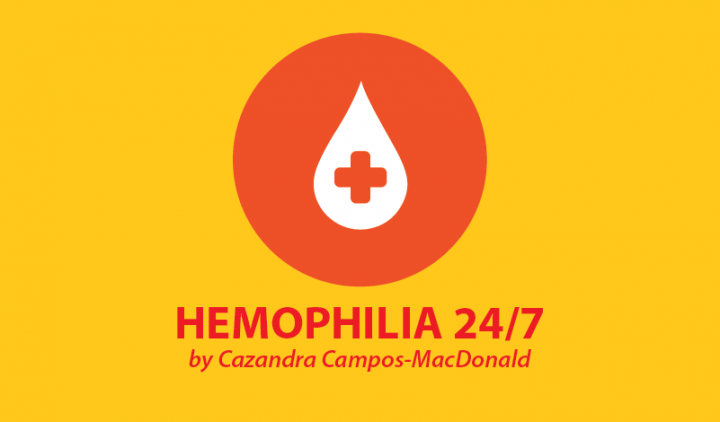Sharing Our Personal Stories With Lawmakers Is a Transformative Process

Most people probably have a handful of good stories to tell at parties, but someone with a rare medical condition never is at a loss for a new tale to tell.
I recently led a workshop to help people in the bleeding disorders community craft their “elevator pitches,” which are quick synopses of an idea or a story created to make a significant impact in a short amount of time. They last about the same time as an elevator ride, between 30 seconds and two minutes.
The workshop attendees are getting ready to lobby their elected officials on behalf of the bleeding disorders community during state legislative days. Chapters across the country of the National Hemophilia Foundation (NHF) participate in both state and national legislative days during the NHF’s Washington Days event. This year’s effort will be held virtually the first week in March.
The group I led consisted of both seasoned veterans of the bleeding disorders community, who already understand how to share their stories, and others who had never spoken publicly about it before. They have a daunting task ahead as they prepare to speak to state legislators about insurance issues affecting their community and the upcoming Bleeding Disorders Awareness Month in March.
Each year, members of our community participate in efforts to educate lawmakers across the country about our needs. The community’s voice is what helps politicians make informed decisions about the needs of people with bleeding disorders.
Speaking to officials about personal experiences is not easy. But in my experience, after having told stories several times in similar situations, it usually leaves me feeling empowered. I hope to run into workshop participants a few years down the road to see how they’ve progressed. I wonder if they’ll be more confident after having shared their stories. Will they be free of the guilt and sadness they currently carry? Will the heaviness of their diagnoses have lightened a little? I hope so.
I want nothing more than to help people find the power that can come from sharing their stories. When there is only time for an elevator pitch, a certain amount of pressure comes with the responsibility of choosing the right words.
The beauty of reaching out during legislative days is that there is never a wrong experience to share. It takes time and effort to prepare to speak to officials. The process culminates in a brief moment that can make a difference, not only in legislative matters, but also by touching the hearts of anyone listening. The heart and soul of a person’s story are evident in their vulnerability. These are the moments that make a difference, not only for the audience, but also for the person who is sharing.
The encouragement and hope that are offered are uplifting. One great story can help someone understand what it is like to have a child with a rare bleeding disorder. It can help them realize the blessings in their own life. Even experiences with a more somber tone can be inspiring.
Our stories have the power to change lives. They could lead to new ideas and perspectives. And if they make someone think twice, then it was a successful exchange.
For several years, hemophilia had overwhelming power in my life. Amazingly, though, the more I shared, the lighter I felt. Writing blogs and columns, being active on social media, and speaking to groups gave me a little more courage. Instead of allowing hemophilia to be the center of my life, I began to take back my power and prevent the disorder from controlling my family. Giving my stories to the world helped me heal from the grief and pain of watching my sons live with hemophilia.
Every experience, incident, challenge, and moment of joy mold us into who we are now. Sharing some of these transformative experiences helps us to live empowered lives that bleeding disorders do not control. Not only can we share our experiences within our community to help empower one another, but also we have the ability to use our stories to change perceptions and address the problems that affect everyone living with a bleeding disorder.
While working toward change and educating lawmakers is important, the progress that happens after each moment of sharing a personal story can lead to a more empowered life for the person sharing it.
***
Note: Hemophilia News Today is strictly a news and information website about the disease. It does not provide medical advice, diagnosis, or treatment. This content is not intended to be a substitute for professional medical advice, diagnosis, or treatment. Always seek the advice of your physician or another qualified health provider with any questions you may have regarding a medical condition. Never disregard professional medical advice or delay in seeking it because of something you have read on this website. The opinions expressed in this column are not those of Hemophilia News Today or its parent company, Bionews, and are intended to spark discussion about issues pertaining to hemophilia.







Leave a comment
Fill in the required fields to post. Your email address will not be published.